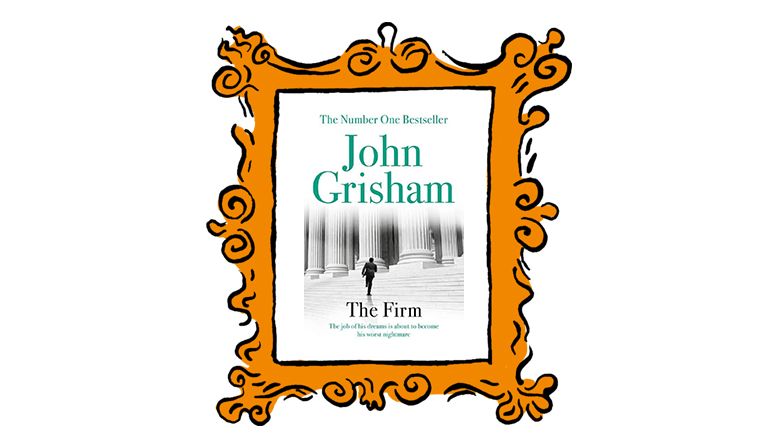We all know that nothing is certain in this life except death and taxes, but the freelancers amongst us currently struggling to file our tax returns and pay what we owe before tomorrow’s annual deadline might take further solace in learning that even the giants who walk amongst us have wrestled with this most levelling of albatrosses.
Reading, last week, the forthcoming edition of Australian literary doyenne Helen Garner’s Collected Diaries, this entry from 1988 caught my attention: “Sudden money problems: tax $6000, royalties $1500. I was hoping they’d balance out.” Which of us hasn’t naively relied on similar blind faith at one point or other? So too Brendan King’s biography of Beryl Bainbridge reveals just how often the British novelist found herself in a desperate muddle when it came to her, not unimpressive, earnings; forced to borrow money from friends to cover unexpected tax bills and fines for late payments, despite paying what she considered “huge sums” in tax.
Patricia Highsmith, meanwhile, was fined for tax irregularities in France in 1980. As an expatriate living abroad, juggling multiple income streams, it’s easy to see how she might have come a cropper, but, as her biographer Joan Schenkar reports, during the previous decade, Highsmith’s letters to her friend Mary McCarthy morphed into increasingly “long rants about what was becoming her obsession with the taxes levied on Americans living abroad”. Indeed, the more Highsmith earned, the more she complained about what she had to pay. “Artists, writers and some filmmakers,” she wrote brusquely in her notebook in 1977, “like Ingmar Bergman—end up as they started…writing for love, working for love, not money, because taxes take almost all the money. A strange cycle.”
In 1952, asked why she no longer wrote her much beloved and hugely successful mystery stories featuring the dilettante, monocle-sporting sleuth Lord Peter Wimsey, Dorothy L Sayers blamed the associated income tax. “Anything that is liable to sell well may be ruinous,” she declared. In contrast, her fellow Queen of Crime, Agatha Christie, supposedly kept writing for as long as she did partly to pay her mounting tax bills.
The paying of what one owes is galling (even if one’s social conscience admits that it’s the right thing to do)—Ernest Hemingway supposedly quipped that if his children were asked what their father had done during the war, they could say that “he paid for it”—but for many of us it’s the filling out and filing of the actual paperwork that’s worse. “The bastardly income tax epoch,” as Hemingway also complained, “that comes to interrupt and bitch work just at the best working time.” I’m not sure I can honestly claim that I’ve been doing my best work this past month—January leaves one feeling fit for nothing—but I have once again honed my talents for procrastination; as I seem to do every year when those reminder text messages from HMRC start beeping on my phone. This time round, though, it’s taken the form of pondering novels the stories of which are in some way tax-dependent, -inspired or -adjacent. If, once you’ve filed your own return, you’re not heartily sick of the whole process, here are my top recommendations.
First up, John Grisham’s The Firm (1991), which was adapted into a film that—dare I say it—is better than the original text. Mitch McDeere is a whiz-kid accountant and graduate of Harvard Law who rejects multiple offers from all the obvious top-tier law firms when he’s headhunted by Bendini, Lambert and Locke, a small but very prosperous tax firm in Memphis. Pretty soon, though, he realises it is all too good to be true. Two of his colleagues die in mysterious circumstances, so Mitch starts poking around. Soon he discovers that his employers are involved in serious tax fraud and evasion on behalf of a major crime family. The FBI is closing in, and he’s under pressure from all sides.
My second pick is Peter Carey’s The Tax Inspector (1991), a dark and disturbing tale about a family of oddballs living in the Sydney suburbs. Each of the Catchprices is a law unto his- or herself, from the explosives-carrying matriarch to her troubled grandson, who wants to become an “Angel of Plagues”. The titular tax inspector is Maria Takis, who arrives in the Catchprices’ midst to audit the books of their failing car dealership. She sees herself as something of a modern-day Robin Hood, rootling out those who won’t pay what they owe and rebalancing the books between the rich and the poor. She’s also young, heavily pregnant and unmarried. Chaos ensues.
Next is David Foster Wallace’s The Pale King (2011)—or, if you can’t quite face all 600-odd pages of it, Something to Do with Paying Attention (2021), which is the self-contained 136-page novella originally embedded in the larger work. Set in an IRS processing centre in Peoria, Illinois, it’s narrated by a young man who recounts his journey from aimless layabout in the suburbs of Chicago to dedicated employee of “the Service” and his subsequent quasi-religious dedication to it and all it stands for. Sounds like it should be prescribed reading for insomniacs, doesn’t it? But it’s actually surprisingly compelling.
And last but not least, take a moment to appreciate the highly effective tax scam that Highsmith’s infamous conman is running out of his grotty New York City apartment at the very beginning of The Talented Mr Ripley. Targeting a very specific group: “artists and writers and free-lance people” who don’t earn enough money to justify using professional accountants, but earn just enough to justifiably be accused of having made a $200-300 error in their sums. “But I’ve paid my tax,” stammers his alarmed mark on the end of the telephone line, a poor Mr Reddington whom Ripley has just informed that he’s due a notice from the Adjusting Department requesting the prompt payment of an outstanding amount:
“These things can happen, you know, when the income’s earned on a free-lance basis with no withholding tax. We’ve been over your return very carefully, Mr Reddington. There’s no mistake. And we wouldn’t like to slap a lien on the office you work for or your agent or whatever—” Here he chuckled. A friendly, personal chuckle generally worked wonders. “—but we’ll have to do that unless you pay within forty-eight hours. I’m sorry the notice hasn’t reached you before now. As I said, we’ve been pretty—”
Hearing about swindles like this in the abstract, we all shake our heads and reassure ourselves we wouldn’t be so gullible, but the fear is real. I, for one, hope I’ve got my sums right…
The writers who found tax taxing
It’s that time of year again: when authors struggle to meet the demands of HMRC. Yet what about those who have actually been inspired by taxation?
January 30, 2025









